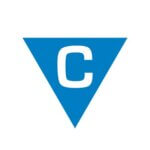Home » D2L for Business – Communitech
D2L for Business – Communitech

Kitchener-based D2L (TSX:DTOL) is making a big push into the corporate-learning market with the recent unveiling of a new platform offering one-stop shopping for businesses looking to upgrade the skills of their employees.
Not only does company CEO John Baker expect D2L for Business to be “transformative” for corporate clients, he predicts it will be revolutionary for D2L itself.
In an interview with Tech News, Baker said it’s never been more important for companies to improve the skills of their employees, given all the recent disruptions in the economy – rapid advances in artificial intelligence, the pandemic, climate change, skills shortages and more.
Beyond that, D2L is taking a deeper dive into the corporate market simply because the opportunity is there, Baker said.
Launched in 1999, D2L boasts 1,240 customers in 40 countries. The vast majority of customers – 80 per cent – are in the education space, spanning kindergarten to colleges and universities.
The corporate market, where 20 per cent of D2L’s clients reside, is much larger and growing much faster, Baker noted.
“We expect we’ll have a big impact in delivering more and more corporate training, going from low single-digit percentage market share there, scaling very fast as we grow into that market.”
The seed for the bigger push into corporate was planted during the dark early days of the pandemic. In 2020, Baker interviewed more than 1,000 CEOs to determine their greatest needs. A consistent answer was the need to “upskill” employees to handle major new headwinds buffeting the economy.
“I’ve always anchored off what’s the most important problem that I could solve that would have the biggest impact on the world,” he said.
Baker used to think that D2L would make its biggest mark by offering digital courses in schools and colleges to launch people toward successful careers. It has since become clear that the bigger opportunity lies in the corporate world where skills-training – and leveraging D2L’s vast trove of academic partners – is critical for companies to stay nimble and ahead of the curve, Baker noted.
D2L for Business includes numerous key components: skills mapping and pathways that enable clients to create a “skills pipeline aligned with business objectives”; access to a curated network of leading universities and colleges; customized digital learning experiences; and learning analytics to help clients measure employee progress and outcomes.
D2L has been working on a corporate strategy for the past 10 years, Baker said, but the key elements anchoring D2L for Business only came together in the past year, and in some cases in the past few weeks.
“Now it’s ready for prime time,” Baker said.
It used to take up to a week for D2L to integrate some of its programs into a company’s software. Now it can be done in minutes, Baker said, noting a recent innovation.
“If you go into a company, we can integrate with their HR systems, their CRMs, all their different technologies. We just make it really easy for us to plug into that ecosystem.”
An important ingredient of the new business platform that corporate clients will have access to is D2L Wave, a marketplace with more than 1,000 academic offerings. Wave offers everything from a micro-MBA program at McGill University to an AI program at the University of Waterloo and a leadership program at Michigan State University.
D2L’s education customers will benefit from the new business platform as well as it will steer more corporate customers toward academic courses, he said.
The biggest challenge in launching D2L for Business was making sure “we had the product-market fit nailed down,” Baker said. D2L engineers spent many hours in corporate offices analyzing how they operated, building out the product, getting feedback and making changes to the software “so we could support these big national and global rollouts.”
In some cases, clients and potential clients had “very manual and very cumbersome” administrative systems, including spreadsheets, to measure the upskilling of employees, he noted.
For customers like these, D2L for Business offers “a really nicely polished solution that takes a lot of friction out of the equation.”
For the first time, clients will have a “single dashboard” that shows their return on investment in learning, he noted.
D2L’s existing corporate customers include CPA (Certified Professional Accountants), ISC2 (an association of cyber-security professionals), construction firm Ellis-Don and Bruce Power.
Baker sees the corporate learning space as wide open. “This is a blue ocean.”
Competitors do pieces of what D2L does, but no one offers what D2L does in its entirety, he said.
With D2L for Business, Baker sees the potential for the company to become a clear market leader over the next five years in the corporate learning space. He even envisions it outpacing the company’s education business, which is growing quickly in its own right.
“I see them reinforcing each other.”
Despite the optimism generated by the new business platform, D2L is still encountering headwinds on the financial side. The company posted revenues of US$44.5 million in its second quarter ending July 31, but still recorded a net loss of US$4.8 million.
Q2 tends to be a high-expense quarter for D2L because it holds its annual Fusion conference during that time, Baker noted. The company also purchased Connected Shopping Ltd., an e-commerce and course catalogue firm, in May, and spent quite a bit of money to support its growth, he added. In that sense, the second quarter “was a bit of an anomaly.”
The company has been profitable for the first half of the year and will continue that trend for the rest of the year, he predicted. Annual revenues are approaching $180 million and D2L has US$110 million in the bank, so “we feel very strong financially.”
When the company went public in 2021, shares opened at $17. They currently hover around $7 per share. Baker attributes the decline to larger market forces. D2L launched its initial public offering at the tail end of the most recent IPO window, just before the entire tech sector hit a rough patch, he noted.
“Unfortunately we got dragged down with that.”
He added, “I think we’re undervalued relative to our performance, looking at common metrics.”
Despite the financial challenges, he remains optimistic, noting that recurring revenue climbed 13 per cent in the last quarter. “I can’t control the broader tech market. What I can control is the ability to get to growth and profitability.”
The company moved into new office space during the summer. After a long stint in the Tannery building on Charles Street in Kitchener, D2L is now based a short distance away in Catalyst 137 – a large, renovated warehouse on Glasgow Street.
The company is slowing bringing teams back into the new office, Baker said. He expects D2L to have a hybrid workspace going forward, with some people working in the office and others remotely.
The company employs more than 1,100 worldwide, with about 600 to 700 employed locally.
Communitech
https://communitech.ca
"Communitech helps tech-driven companies start, grow and succeed. Communitech was founded in 1997 by a group of entrepreneurs committed to making Waterloo Region a global innovation leader. At the time it was crazy talk, but somehow this community managed to pull it off. Today, Communitech is a public-private innovation hub that supports a community of more than 1400 companies — from startups to scale-ups to large global players. Communitech helps tech companies start, grow and succeed in three distinct ways: - Communitech is a place – the center of gravity for entrepreneurs and innovators. A clubhouse for building cool shit and great companies. - Communitech delivers programs – helping companies at all stages with access to capital, customers and talent. We are here to help them grow and innovate. - Communitech partners in building a world-leading ecosystem – making sure we have all the ingredients (and the brand) to go from a small startup to a global giant."


